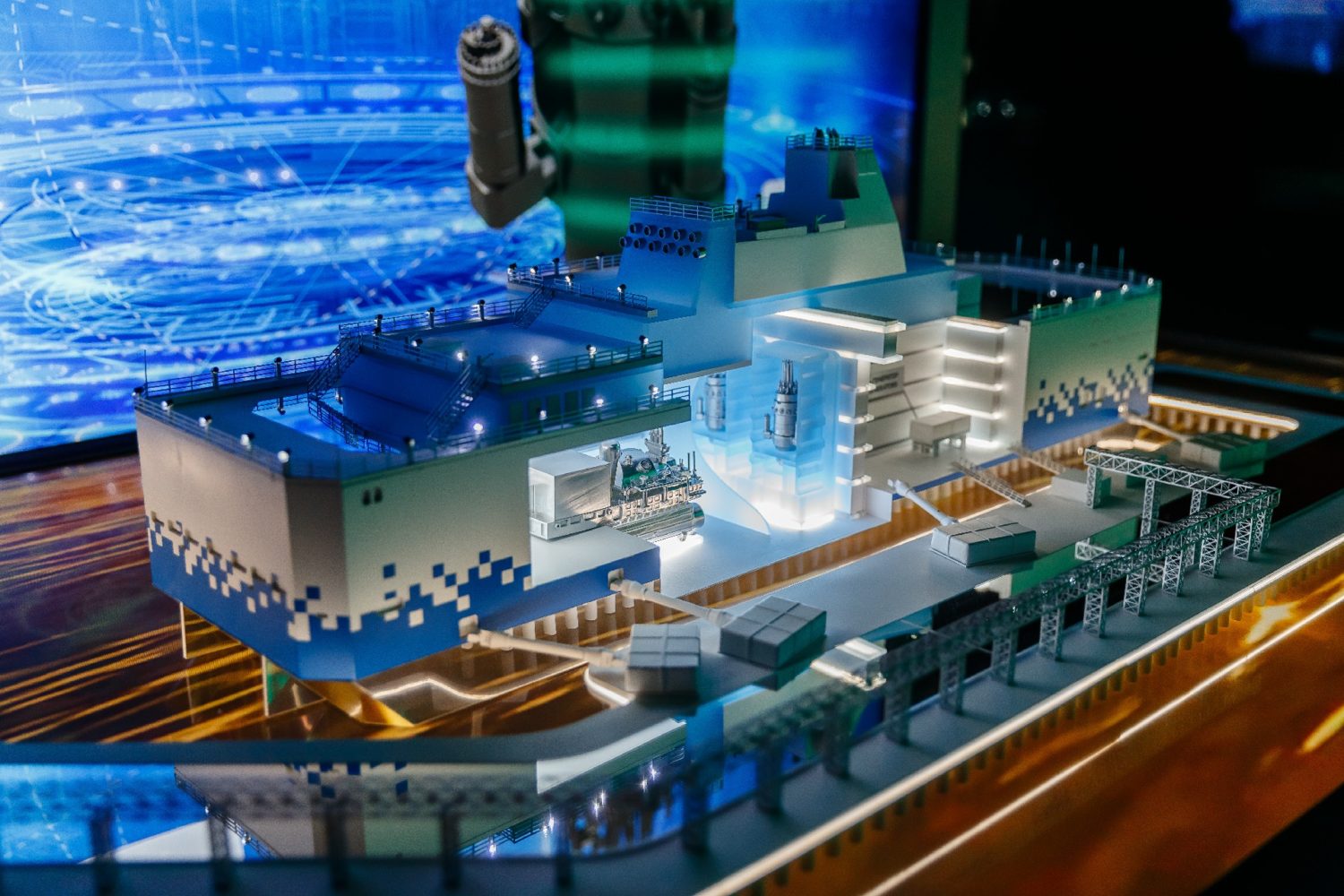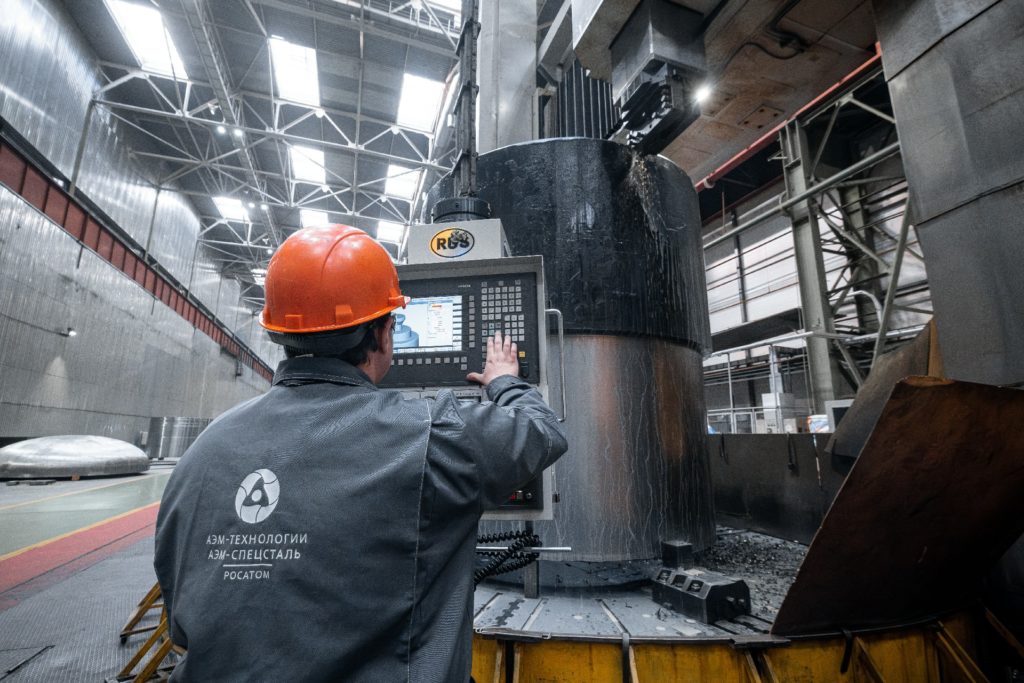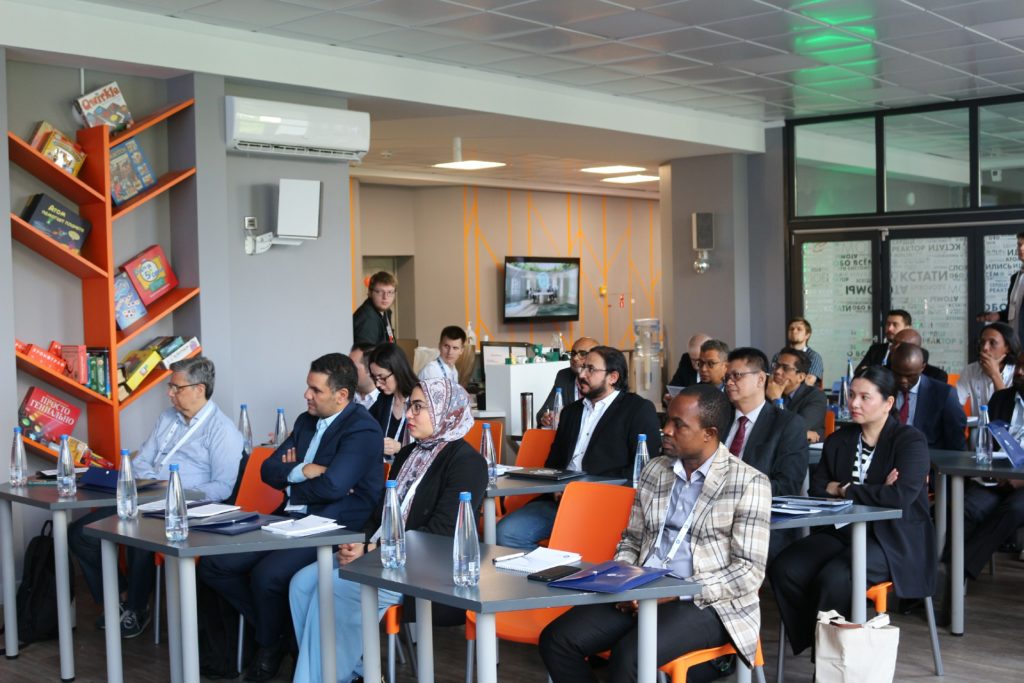
Small Power
back to contentsSmall modular reactor nuclear power plants (SNPPs), both offshore and onshore, form a new business segment for Rosatom. The world’s first floating nuclear power plant, Akademik Lomonosov, has been successfully operating in Russia’s northernmost town of Pevek (Chukotka Peninsula) for four years by now. Russia’s first onshore SNPP to be built in Yakutia is preparing for the first concrete pouring. Rosatom is also making agreements with other countries all over the globe to promote small-scale nuclear generation projects. Here is the latest news from this business segment.
Akademik Lomonosov
The Akademik Lomonosov floating nuclear power plant is equipped with two KLT‑40S reactors. The first of them was successfully refueled in late 2023, with the other to be refueled by the end of the current year. In July, Elemash (part of Rosatom’s nuclear fuel division) shipped a batch of fresh fuel for this purpose.
The KLT‑40S reactor core consists of fuel assemblies, emergency shutdown rods, and startup neutron sources. It is refueled in a single batch once every few years. Completion of the first refueling marks an important milestone in the operation of the reactor plant, meaning that it was performing nominally throughout the first fuel campaign.
Yakutian SNPP
Preparations are in progress on the site of the Yakutian SNPP as workers are building the second construction camp (temporary accommodations for the on-site staff), roads, and other infrastructure facilities. Rosatom also sponsored the renovation of the runway in the town of Ust-Kuyga.
Earlier in June, Rosatom and the Government of Yakutia signed a power grid construction agreement on the sidelines of the Saint Petersburg International Economic Forum (SPIEF 2024). The document provides that Yakutia will build the necessary power distribution infrastructure, including power lines and substations, in the communities near the Deputatskoye, Tirekhtyakh and Kyuchus deposits. Speaking at the forum, Kirill Bychkov, Chairman of the Yakutian Government, said the parties were discussing the possibility of equipping the Yakutian SNPP with two reactors.
New agreements and prospects
In late May this year, Rosatom and Uzbekistan signed a contract to build a small modular reactor nuclear power plant in the country. This is the world’s first export contract for the construction of an SNPP. The plant will have six 55 MW reactor units, each to be commissioned one by one. The first one is scheduled to be brought to power in late 2029.
In late June, the SNPP construction office held its first meeting, which was attended by representatives of Uzbekistan’s Nuclear Energy Development Agency (Uzatom) and Rosatom’s engineering division AtomStroyExport supervising the construction project.
“We are entering an active phase with this major project, which will provide the region with clean energy. We know our Uzbekistan partners as efficient and talented managers, and now we are starting joint activities at the construction site. I am confident that together we will meet all of our contractual obligations in a timely and orderly manner,” said AtomStroyExport President Andrey Petrov.

In early July, a delegation from Rosatom visited Mali to hold extensive negotiations on a wide range of nuclear power matters. Particular attention was paid to the possibility of building a Russian-designed small modular reactor in Mali. Following the talks, the parties signed three memorandums.
Earlier in June, Rosatom’s mechanical engineering division and officials from Guinea met at SPIEF 2024 to sign a memorandum of intent. The parties will study the possibility of deploying offshore power units with RITM 200 reactors to supply electricity to the country’s households.
Learning technology
In early July, Rosatom’s Technical Academy in Saint Petersburg hosted a training course that addressed solutions to the infrastructure issues arising when small-scale nuclear generation capacity is added to the national energy mix. The course was attended by representatives of 16 countries, including Egypt, Indonesia, Malaysia, Saudi Arabia, Thailand and Egypt.
The course included lectures, seminars, and a virtual technical tour to the Akademik Lomonosov FNPP. The attendees also had an opportunity to see how nuclear-powered vessels are built in Saint Petersburg.
The training course covered construction and operation of offshore and onshore SNPPs, construction licensing, site selection, and establishment of national regulatory bodies. “We were told about the financial and legal issues that may arise when implementing nuclear programs. The knowledge I have gained will help me to more deeply assess the current state of the nuclear program in my country and offer appropriate recommendations to the management,” said Edwin Ndoli from the Rwanda Atomic Energy Board.

“Rosatom is active in different applications of nuclear energy, which is recognized as ‘green’ by most of the world. We believe that offshore power units will be in great demand both in our country and around the world. This technology causes great interest, so we are negotiating on it,” Andrey Nikipelov, Deputy Director General for Power Engineering and Industrial Solutions at Rosatom, said at SPIEF 2024.




